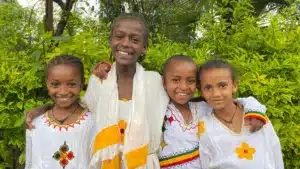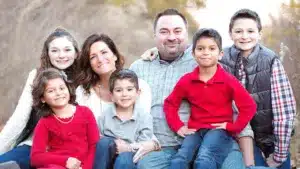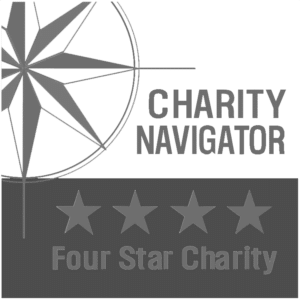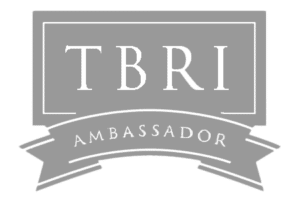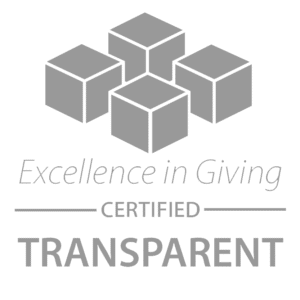Julie Lyles Carr is an author, podcaster, speaker, broadcast media extraordinaire and, of course, mom of eight. We had the honor of hearing her thoughts on life roles and transitions and we’re happy to pass along her wisdom in this blog.
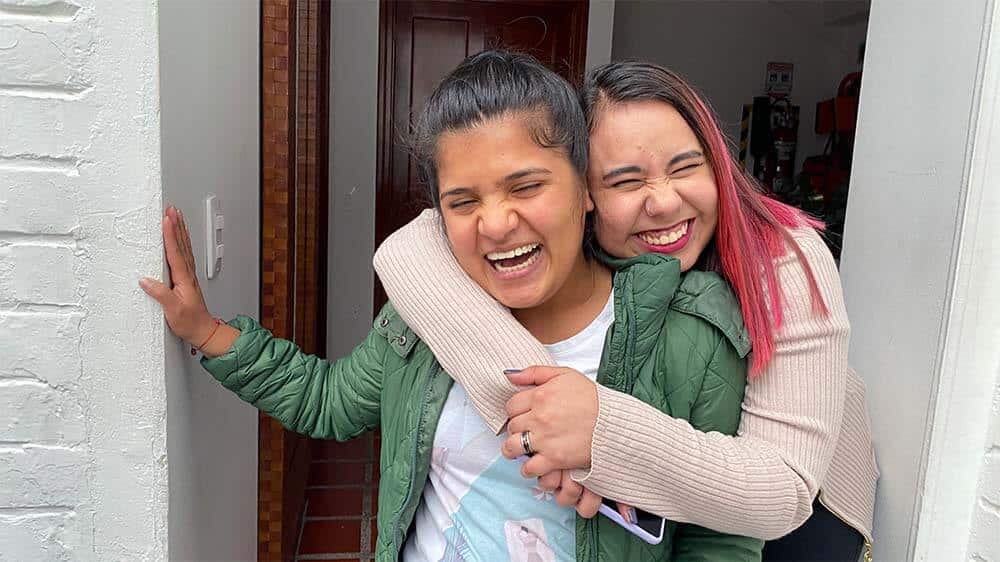
I wear many hats and as a mom of eight, my career path has taken a lot of twists and turns. I wouldn’t even call it a balancing act; there’s no real balance to it. When it comes to transitions, I just tip over into the chaos.
Not everything I’ve pursued has been a childhood dream. That’s one of the things that I think is so beautiful: people finding a willingness to try something that maybe they’d never considered before. Maybe they had settled into a certain type and pace of lifestyle but then they began to feel God tug at their heart. And I think it’s important that we all take a beat—pause—while we’re telling God the things that we’d like to do and listen for our calling. He may have a very different way of executing those things in our lives than we would’ve anticipated.
When it’s time to transition, there are questions to answer; What pieces of you should you carry forward? What’s going to keep serving you? How are you going to stay relevant? I’m trying to do a better job of gleaning from whatever role I’m playing that which can be carried forward and used in a fresh way.
I look a lot at the story of Caleb because one of the things that God says of Caleb is that he has a different spirit. When I unpack that, I look at how Caleb and Joshua came to the Promised Land. They were two of Moses’ guys and they were part of the leadership team that was going guide the Israelites to the Promised Land. They were at their peak when they made first approach to the Promised Land. They were 40 and they went with 10 other guys to peek over at the Promised Land. Joshua and Caleb came back and said, “We can totally do this!” but the 10 other guys said, “This looks too daunting. It’s too difficult,” and they instead wound up on a wandering field trip for another 40 years. When they finally arrived back at the Promised Land, they could have thought they’d missed their chance. I can see that in a lot of us, a tendency to say, back then is when I should have done the thing. Instead, Caleb says, “I am just as in it now as I was 40 years ago.” He’s 80 years old at this point and one of the seminal things that he says—and I think why Caleb remained relevant—is that he knows the art of war and he’s going to show them how to do battle. I want to show people how to do battle.
Here’s the advice: As we see our roles changing, having a different spirit about it is the spiritual discipline we need to exercise. We are only as irrelevant as we speak over ourselves. It’s sad to think we’re irrelevant because we don’t occupy a certain role anymore. That is simply a cage of our own making. What are the values you’ve learned from those roles and how do you communicate those in ways that help the next generation learn to do battle and go the places they’re being called? That’s the piece that I want people to feel empowered and fired up about because the world needs what you have to offer and there is so much to be offered when we bring all of it to a collective communal table and say, I have something to learn from someone younger than me, I have something to learn from someone older than me, I have something to offer someone younger than me, and I have something to offer someone older than me.
Through the pandemic, one of the things I’ve found fascinating is watching the people who are figuring out how to pivot their businesses, their ministry, their conversations about what all this feels like, versus those who are seemingly desperate to get back to whatever ‘normal’ was. It’s a living example of people who feel displaced in their roles and people who are taking the core of what they’ve learned in those roles and carrying it forward to navigate times of change. That ability to pivot and pivot well is a powerful lesson to me.
Often, we bring a level of compartmentalization into our lives. I’m a mom, broadcaster, and writer, and one of the secrets that’s allowed me to tackle everything is there wasn’t an ability for me to draw clean lines between all of those. I’ve had a lot of people reach out to me asking, “How do you juggle all this?” Part of my response is that it’s always been messy. I had to embrace the mess early on and that’s part of what I’m seeing people having to embrace now. I love that people have Zoom meetings with their cat wandering through the shot and their kid wandering in with a bottle. And I’m not saying that having compartmentalized lives does not also have value—I understand people focus better when they have boundaries around certain aspects of their lives—but I think this phase is amazing. It’s an opportunity to experience what you can glean from various roles. If you are a great project manager at an architectural firm, you have skills that you can extrapolate to survive being home with your kids and making sure that they get their science project done. I hope that one day people look back and realize that one of the best gifts of the pandemic is that some of those compartments came down and we were able to live our lives more organically while everything got messier in the most beautiful way.
The point is that we need to grow into the roles we’re given throughout our lives. You’re not alone in questioning your direction from time to time but you are exactly where you need to be. God has circled your location right this very moment on a map for you. And you’re doing great.


